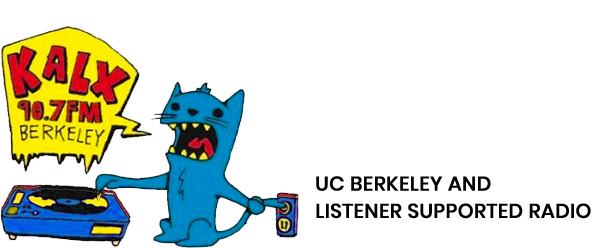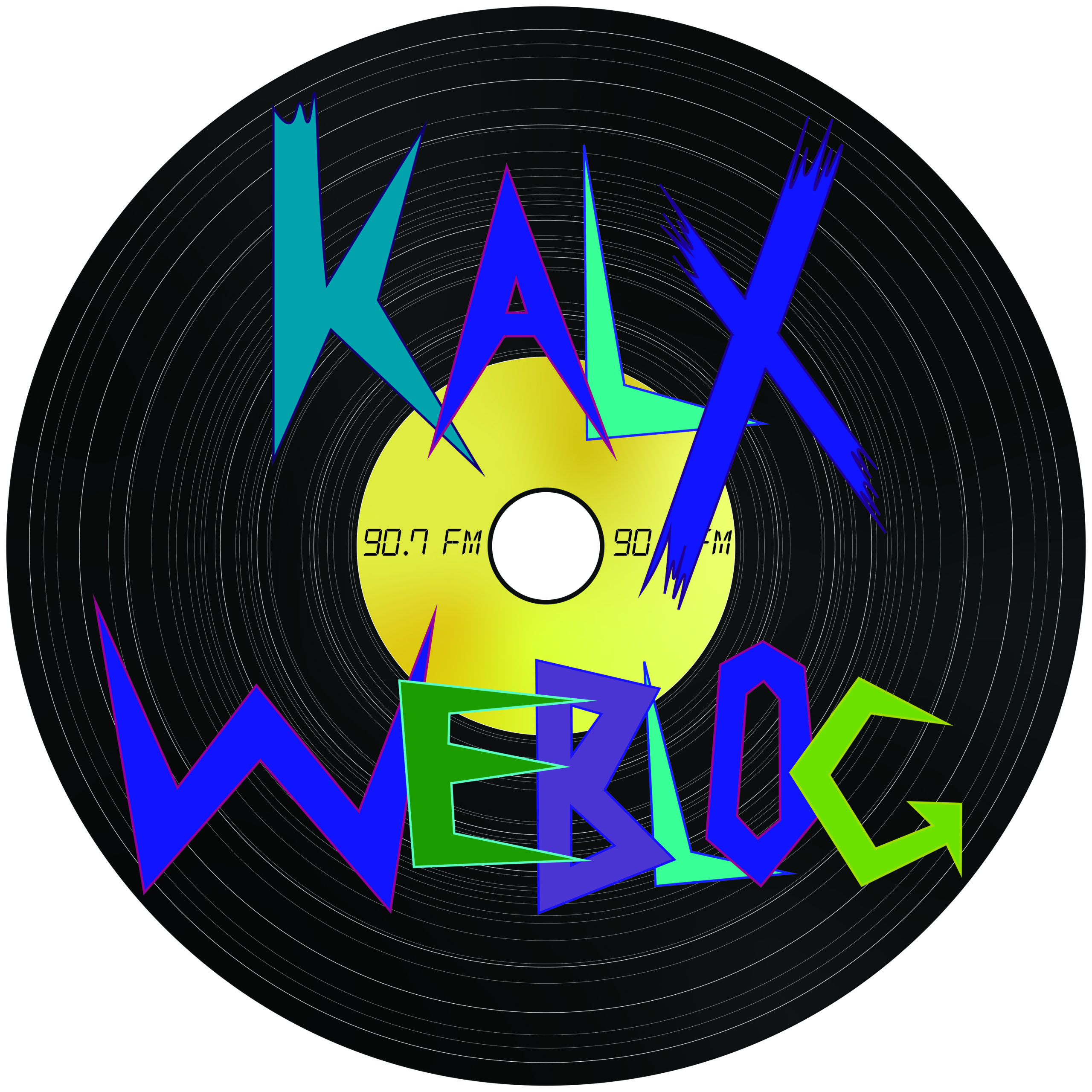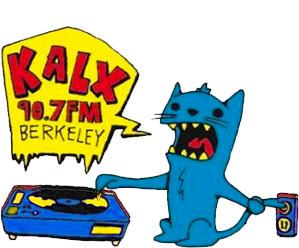Earlier this Spring, Velvet Einstein interviewed Meg Remy from U.S. Girls during her tour stop in San Francisco. Together they discussed Remy’s evolution of her creative process, the influence of Springsteen on her work, as well as a theory for plastic surgery resulting from fear of death.
Your new album is called In A Poem Unlimited. I’m curious about the origins of this album. Throughout your career you’ve had this trajectory of working by yourself and doing really noisy compositions to working with a lot of collaborators. What are your thoughts are on that trajectory?
I think it’s just a natural evolution. I have to change or else I get bored and squirrelly, so I had kind of exercised the solo thing as far as it could go. Instead of making an album I’d already made I figured I would try and make an album I hadn’t made at all yet. The idea of how I wanted the album to sound and what I wanted to achieve was just something I couldn’t do on my own so I needed to enlist the help of people that had the skills that I didn’t have.
What was the collaboration process like? Would you start with the idea and go to them or would they come to you?
It’s different. Each song I wrote with a lot of people I’ve been writing with for the past two albums. Some songs started with a weird demo they would give me that I would write vocals to. Or it started with vocals that I had fully written with the melody already, and they put music to it. There was no set way.
Was there any sort of anxiety around letting go of the music?
I think that anxiety was just in working with people that are so proficient musically, where I’m not really academic musically. I think that was the only kind of stressor- me feeling like I wasn’t going to be able to express what I wanted to do in the correct vocabulary to these people. But it ended up not being a problem and I just had full trust in them.
You said before you refer to your music at this point being more “curatorial”.
Yeah, because I’m trying to achieve things. I can come up with the ideas, but the actual execution I can’t do, so I’m curating an album. With this album, I knew how I wanted it to feel and sound, what I wanted the content of the songs to be like. Like how a person curates an art show, they might say “I want to make an art show under this banner, this theme,” right? Now I’m going to find the artist to fill the room. That kind of thing, it’s not so cut-and-dry, because I do write all the lyrics and have a big part in that, but I can’t take credit for the playing. I don’t play anything, I sing.
In terms of the lyrics, your songs have a strong sense of storytelling and characters. Where does that come from?
I don’t know. I think that’s just the kind of music I like to listen to, so I’m always trying to make something that I myself would want to consume. I don’t want to add to the pollution. I think there’s enough stuff out there people put out that they don’t actually feel strongly about. I wish there was more of a filtering out process. But it comes from the stuff that I like to listen to and how I think that the topics I’m trying to talk on are better digested if they’re put through the guise of a story of a regular person.
You’ve spoken before about your love of Bruce Springsteen. Was that an influence?
Yeah, of course! [He’s a] huge influence on lyric writing, how to convey emotion, and how to take large, complex political ideas and kind of distill them to an anecdote about an average person’s life. You can see a larger picture of how the machine works.
Within Bruce’s large catalog, do you have particular songs that you’re drawn to?
Yeah, “Darkness On The Edge Of Town”, “Nebraska”, and his late 80s, early 90s solo stuff I love the most. Especially the Human Touch album.
Do you find a direct correlation between your music and his? Do you sometimes listen to Human Touch and say, “oh, I want to do that,” or something in that mode?
No, because I’ve covered Bruce before, and I’ve definitely pulled from him, but you could say that I’ve pulled from everything that I’ve liked; it’s not just him. I don’t want to be just a knock off of something ever, so I take bits and pieces from all kinds of things and work them into my stuff.
In terms of the sonic composition, you’ve worked a lot with tape, and a lot of analog sounds. Is that something you continue to do, or are you more shifting into the digital realm at this point?
Well I used to use tapes live, and I was using them even on the last tour I did with the band, since they’re new. I used to just play solo or with another singer with a bunch of machines. In this tour I’m still using the tapes, but I transfer them to a sampler, so the samples are coming from tape, but it’s being played from a digital interface now. This has freed me up to be able to work on more movement on stage and not be tied to rewinding and fast-forwarding tapes, landing on the right spot, and switching tapes out. I’m not I’m not one of these people that’s like [an] analog loyalist, or has a problem against digital. I just understand how analog machines work more than digital machine sets, and they’re often cheaper. So it was really more an economic choice of how I got into it more than anything.
In terms of the evolution of the music that you’re presenting and your performance, do you find that you’ve grown in your confidence level in performing and the ability to expose yourself to the audience?
Yeah, hugely. For years I performed crumpled on the ground, sitting, not being able to look at anybody. Now, it’s actually a performance that’s thought out and that has a purpose, so my confidence has grown hugely. I think collaborating has made that happen, and also aging.
[Regarding] feedback to your songs and whatnot, are you actively looking at social media and the press to know what people are thinking of your music?
No. Not at all.
In terms of politics, there’s certainly a political bend to your music. Are you trying to make overt political statements, or is it more just telling the stories of the every man and every woman?
I think I’m definitely going to be overtly political, but I don’t think I have any answers, so I’m just saying what’s on my mind, and the kind of connections I’ve made in things I’ve seen. But I don’t know anything. I don’t know how to fix it, I’m just kind of a reporter.
Could you talk about what the song “Pearly Gates” is about?
“Pearly Gates” is about a woman who tries to have sex with Saint Peter to try and get into heaven as a loophole, and then she’s the one who’s kind of fooled and he acts like “oh I don’t remember having sex with you” and she doesn’t get in. That relates to a lot of things. For me, it relates to being a woman. I’ve done things to try and get something. Done something I didn’t want to do in order to gain something. Either power or opportunity, and then it backfires with how you should never do that to begin with. The idea of Gatekeepers, too. And it goes even further, if you want to discuss religion in general, specifically Catholicism and that how that relates to the oppression of women and children.
Do you see that as tied in with the #MeToo movement? Was it written before or after?
It was written before, but it’s interesting how it links up. When you’re looking at #MeToo in relation to Hollywood, these women put themselves in compromising positions because they thought they had to in order to get that opportunity for their career, and how sad that is, but also very common in every field. It’s not just in Hollywood. Both sides need to check themselves; obviously the male said the most, and I’m not giving them a free pass or letting them off the hook at all but women need to start understanding their worth and act accordingly.
Speaking of that, you have a song called “Woman’s Work” which is about plastic surgery essentially?
Yeah, I mean, it’s about plastic surgery and how I think that it comes from a fear of death, and how anti-aging comes from a fear of death. That’s the only reason why you wouldn’t want to age just, ‘cause you don’t want to die, and we are all going to die, so we just need to accept that.
So you think it’s a fear of death and not so much an interest in being attractive to other people?
Yeah, but that’s tied up with our obsession with youth. I think the obsession with youth first and foremost comes from a fear of death. Otherwise, we would cherish and acknowledge the beauty of older age; how you look lived-in, how you have the most experience, and you would have seen the most, and how that would be the most attractive. Not the most naive, under-experienced, [or] less lived-in thing.
The song “Mad As Hell” [written as “M.A.H.” on the album] is about Barack Obama?
Yeah, it’s about Barack Obama, but it could be about any president. I just happened to make a cheeky statement and chose him, because I was writing when the election was going on, and I think people assumed I would have written the song directed toward Trump or something. So it was kind of flipping the script on that, but it could be any president. It just has to do with military spending and where our tax dollars are going and what that money is used for and how I’m really pissed off about it. Just the charade of politics in general. These candidates that we choose are basically shells; they’re just facades that we are marketed.
You mentioned before that you don’t have any answers, but I’m curious if you’ve managed to find any way to get accurate news or reliable news sources?
I find that the best thing for me to do is just talk to friends and to read books and stay away from current media, websites, newspapers, all those things. I don’t trust that. I haven’t found a source I trust yet.
Transcript by Carmen Llerena


